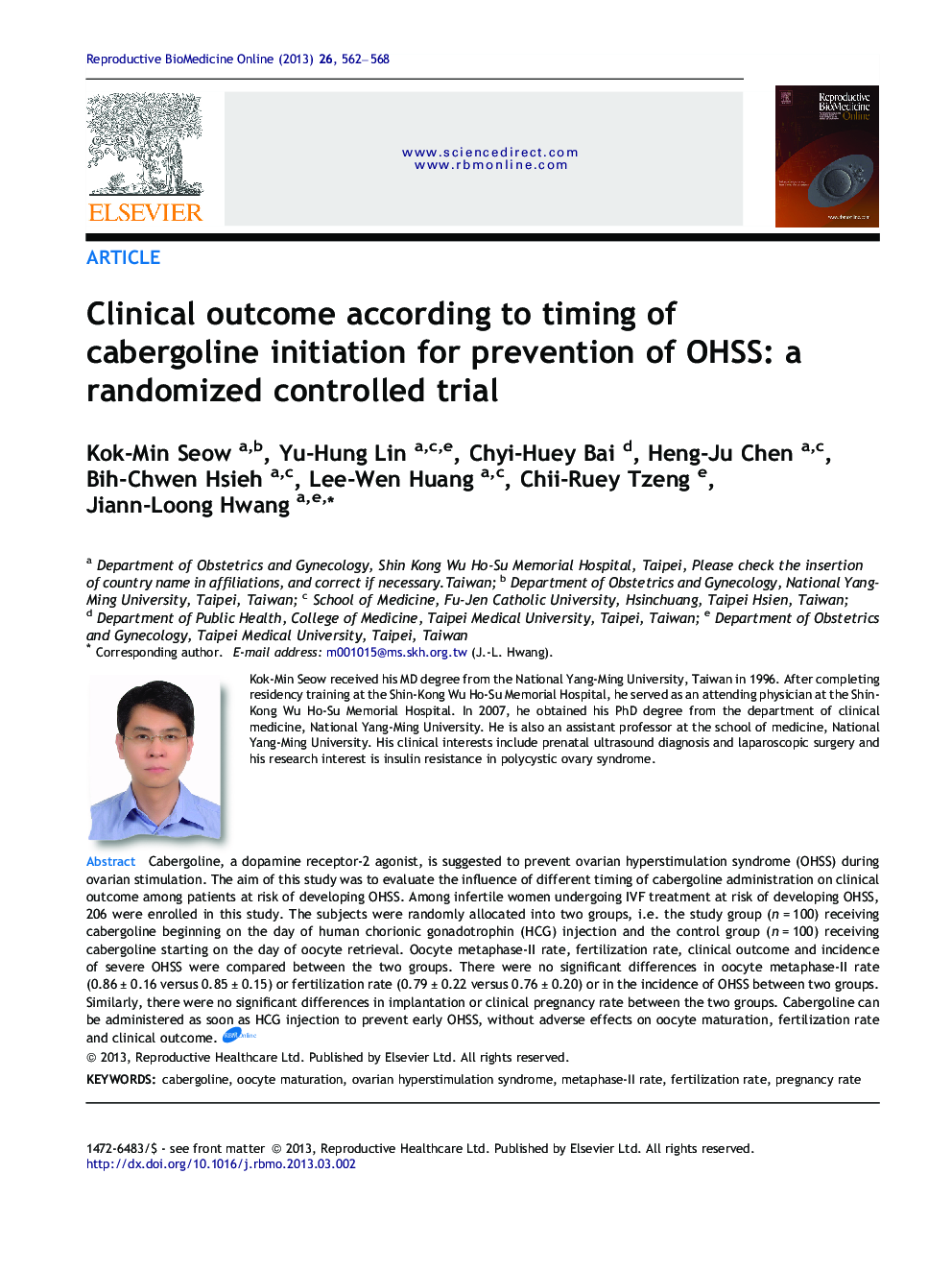| کد مقاله | کد نشریه | سال انتشار | مقاله انگلیسی | نسخه تمام متن |
|---|---|---|---|---|
| 6189150 | 1256719 | 2013 | 7 صفحه PDF | دانلود رایگان |

Cabergoline, a dopamine receptor-2 agonist, is suggested to prevent ovarian hyperstimulation syndrome (OHSS) during ovarian stimulation. The aim of this study was to evaluate the influence of different timing of cabergoline administration on clinical outcome among patients at risk of developing OHSS. Among infertile women undergoing IVF treatment at risk of developing OHSS, 206 were enrolled in this study. The subjects were randomly allocated into two groups, i.e. the study group (n = 100) receiving cabergoline beginning on the day of human chorionic gonadotrophin (HCG) injection and the control group (n = 100) receiving cabergoline starting on the day of oocyte retrieval. Oocyte metaphase-II rate, fertilization rate, clinical outcome and incidence of severe OHSS were compared between the two groups. There were no significant differences in oocyte metaphase-II rate (0.86 ± 0.16 versus 0.85 ± 0.15) or fertilization rate (0.79 ± 0.22 versus 0.76 ± 0.20) or in the incidence of OHSS between two groups. Similarly, there were no significant differences in implantation or clinical pregnancy rate between the two groups. Cabergoline can be administered as soon as HCG injection to prevent early OHSS, without adverse effects on oocyte maturation, fertilization rate and clinical outcome.Cabergoline, a dopamine receptor-2 agonist, is suggested to prevent ovarian hyperstimulation syndrome (OHSS) during ovarian stimulation. Nevertheless, the most suitable timing of cabergoline administration has not yet been studied. The aim of this study was to evaluate the influence of different timing of cabergoline administration on final oocyte maturation, fertilization rate and clinical outcome among patients at risk of developing OHSS. Among infertile women undergoing IVF treatment at risk of developing OHSS, 206 were enrolled in this study. The subjects were randomly allocated into two groups, i.e. the study group (n = 100) receiving cabergoline beginning on the day of human chorionic gonadotrophin (HCG) injection and the control group (n = 100) receiving cabergoline starting on the day of oocyte retrieval. Oocyte metaphase II rate, fertilization rate, clinical outcome and incidence of severe OHSS were compared between the two groups. There were no significant differences in oocyte metaphase II rate (0.86 ± 0.16 versus 0.85 ± 0.15) or fertilization rate (0.79 ± 0.22 versus 0.76 ± 0.20) or in the incidence of OHSS (3/100 versus 1/100) between the control and study groups. Similarly, there were no significant differences in implantation rate (36.6% versus 34.0%) or clinical pregnancy rate (54.0% versus 51.0%) between the two groups. Among women at high risk of OHSS, cabergoline can be administered as soon as the HCG injection to prevent early OHSS, without adverse effects on oocyte maturation, fertilization rate and clinical outcome.
Journal: Reproductive BioMedicine Online - Volume 26, Issue 6, June 2013, Pages 562-568